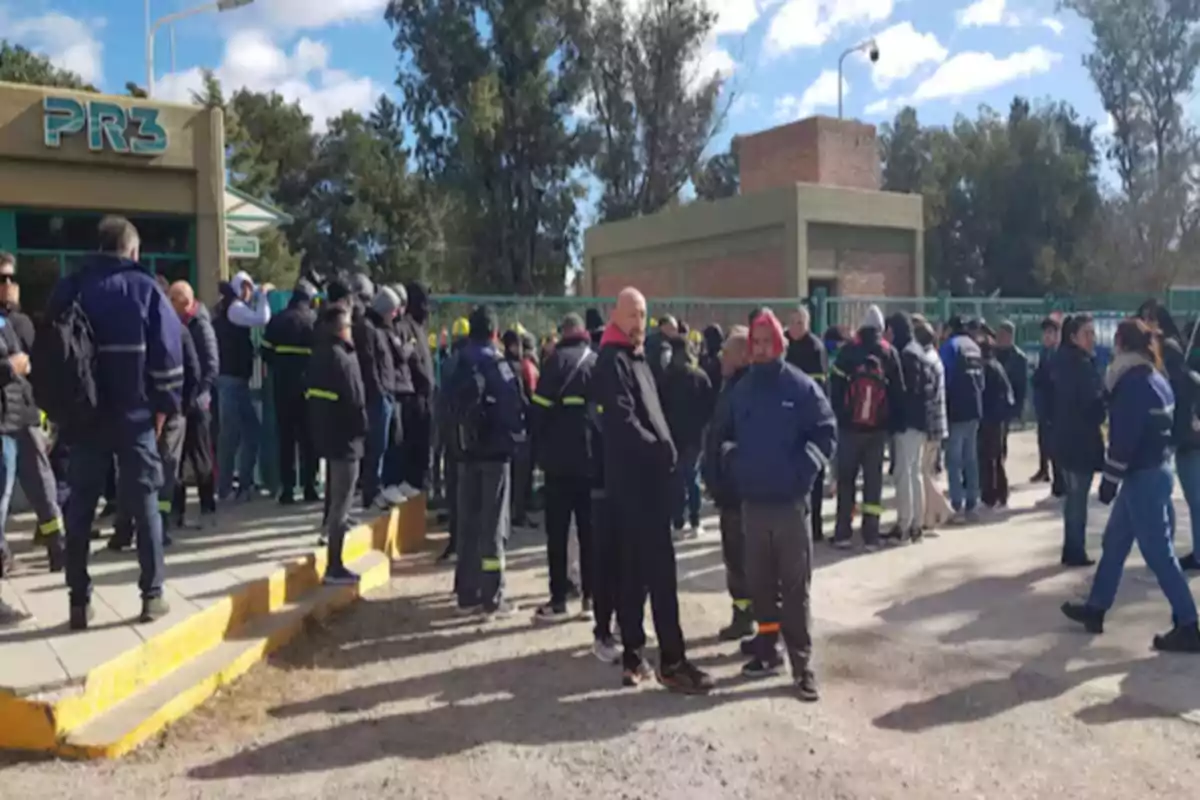
The Río Tercero plant remains paralyzed, and tension is rising over the 124 layoffs.
The union anticipates remaining in their positions if there is no reinstatement. The mandatory conciliation expires on Monday
Since Petroquímica Río Tercero announced 124 layoffs, tension at the plant has continued to escalate between management and workers.The chemical workers' union warned that if there are no reinstatements this Monday, the dismissed employees will remain at their posts inside the factory.The deadline for the mandatory conciliation, imposed by the Ministry of Labor, expires that same day without any agreement having been reached.
During the official hearings, the company did not present any concrete proposal to reverse the layoffs, which fueled union discontent. "We are reaching the end of a mandatory conciliation with a company that practically appeared only because it was required to but never brought any proposal to solve the problem or the conflict we are in," stated Gabriel Cuaino. The union insists that the "peaceful" occupation is a legitimate measure in response to what they consider a violation of labor rights.
Lucas Felici, one of the union leaders, stated that the conflict has already gone beyond strictly labor issues and directly affects the entire city. "It has ceased to be a labor conflict and has become a social conflict because behind this conflict Río Tercero loses 10,000 million pesos (22,046,200 USD) in annual revenue." He also pointed out that if the police intervene in the event of an occupation, political responsibility will fall on the municipal and provincial authorities.

Regional impact and business silence
The closure of the TDI plant in October 2024 marked the beginning of a business offensive that now puts local employment at risk. That unit accounted for 80% of Petroquímica's revenue and, when it was shut down, left the nitric acid produced by the neighboring Fábrica Militar without a destination. The union pointed out that in just nine months the company dismissed 249 workers, reducing the workforce from 375 to 130.
Despite the massive adjustment, the company has not paid the corresponding severance to the newly dismissed employees.The union claims that Petroquímica resorted to a "lockout" and halted all production, even though the workers must continue to fulfill their shifts. The judicialized preventive crisis procedure has not prevented the staff from remaining without certainty or income.
"The provincial government must set the rules and build a concrete solution for this conflict," Felici demanded again. Supported by other unions, the workers are planning a massive march in Córdoba, understanding that this case could set a serious precedent. The lack of official intervention fuels suspicion that the aim is to normalize dismissals without severance and the erosion of labor rights.

Criticism of the model and union warnings
The production standstill in a company with more than four decades of history presents a bleak scenario for the regional economy.The union warns that if there is no halt to the asset stripping, other industrial sectors could face similar maneuvers. "If this situation ends up being beneficial for the business owners, it is the new recipe that business owners in Córdoba will use," Felici warned.
The inaction of the authorities in the face of the loss of a key chemical hub also impacts Fabricaciones Militares, whose production has been partially paralyzed. "What is being discussed here is not only the future of the workers at Petroquímica Río Tercero but the future of industrial workers in a province," Felici insisted.
The silence of the provincial government and the lack of business responses deepen a conflict that goes beyond union issues and takes on a political dimension. Petroquímica used state and municipal resources for decades but now seeks to withdraw without settling its debts with the city and the workers. What is at stake is not only a source of employment but the precedent set by a crisis without resolution and with production halted.
More posts: